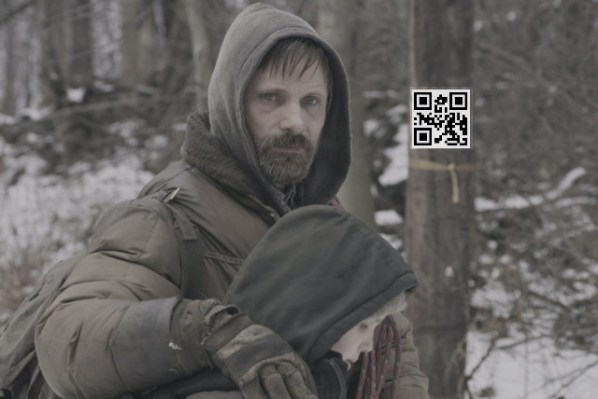Say the Mayans are right, and a meteor or some other catastrophe strikes the Earth sometime later this year. Assuming we’re not all wiped out by the impact, emergency services worldwide are going to need to do some serious canvassing to assess damage, resources, and form a picture of the disaster.
DARPA is running a little game, called CLIQRQuest, to look into how such a network of people might do such a task. But instead of asking people to snap pictures of reservoirs and hospitals, they’re giving cash prizes for finding QR codes.
 Not just any QR codes, of course; the agency has distributed codes like the one at right throughout the continental U.S. “to represent the dispersion of resource concentrations throughout the country.” So there won’t be many pasted to signposts in the great plains, but presumably there will be lots in population- and resource-rich areas like larger cities and ports. How many are there? DARPA isn’t saying, though they helpfully note that the number is “finite.”
Not just any QR codes, of course; the agency has distributed codes like the one at right throughout the continental U.S. “to represent the dispersion of resource concentrations throughout the country.” So there won’t be many pasted to signposts in the great plains, but presumably there will be lots in population- and resource-rich areas like larger cities and ports. How many are there? DARPA isn’t saying, though they helpfully note that the number is “finite.”
Yet it’s not just a scavenger hunt. After all, it would be difficult for an individual or even a good-sized team to physically scan however many tags are out there. And DARPA has already conducted experiments that have proven the efficacy of crowdsourcing a task like that.
So, as DARPA puts it, this is more a test of exchanging information via social media. You’ve got people all over the place scanning these codes, which are supposed to represent water, food, generators, and so on. You advertise what you’ve got, leverage your social connections, start a website, make an app — however you want to do it. The winner is either the person who collects all the codes or the person with the most when the contest ends on the 12th.
You’re not going to rank even if you scanned every code for a hundred miles. You need the others to volunteer their information, and they need you to do the same, with the shared goal of getting all that info in one place as fast as possible. It’s a fairly good representation of the problem they are investigating.
The contest is going on right now and you can join in if you like — just register at the spartan contest webpage and start submitting codes you’ve gotten by whatever means you have available.
